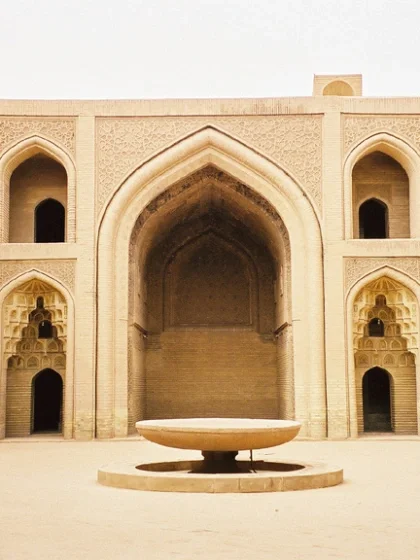About Us
The Pioneering British Muslim Generation
The Islamic Sharia Council is the first sharia council established in Europe and the Americas, and remains a pioneer in this unique field. Established in 1982, this was the first time the concept of ‘sharia councils’ was coined and established.
In 1980, a ground-breaking conference was held in Birmingham Central Mosque to discuss further needs of the community, with representatives from the largest Mosques and Islamic centres invited to attend, representing all four Sunni mazahib (schools of law) . It was noted during deliberations that British Muslims were facing new challenges and had new jurisprudential issues that needed urgent scholarly responses. Furthermore, there were no mechanisms in place for couples to achieve an Islamic divorce. Most troubling were the incidents in which women who had married abroad and who were in abusive marriages or had been abandoned by their husbands. The only option for divorce for such ladies was to return to their countries of origin to obtain a divorce, which was expensive and added further trauma to their difficulties.
And so, Conference agreed to establish the Islamic Sharia Council of Great Britain and Eire, as an Islamic court to deal with matrimonial problems as well as jurisprudential issues (fiqh). The ten founding members of the ISC were:
London Central Mosque and Islamic Cultural Centre, London
Muslim World League
Markazi Jamiat Ahl-e-Hadith, UK
UK Islamic Mission
Da’watul Islam, UK
Jamia Mosque & Islamic Centre, Birmingham
Islamic Centre, Glasgow
Islamic Centre, Didsbury, Manchester
Jamia Masjid Hanafiya, Bradford
Muslim Welfare House, London
Our Story: Marriage and Divorce
In Islam, marriage (nikāh) is a civil contract with a spiritual dimension. The nikāh ceremony, usually conducted by an Imam, is considered the binding marriage and is often celebrated with great joy. A civil marriage may also be conducted but is sometimes regarded as secondary.
When a marriage sadly breaks down, Muslims often seek to end both the religious and civil components together. However, many couples in the UK have only a nikāh without civil registration. While family courts can adjudicate on children, residence, or finances, they cannot dissolve a purely religious marriage. For such cases, the only recourse is to approach a religious body such as the ISC.
This dual reality has given rise to the saying: “Muslims marry twice and divorce twice.”
The ISC Today
Since its founding, the Islamic Sharia Council has remained a pioneering institution—emulated by many, but equalled by none. We are committed to:
Providing a systematic, professional, and compassionate process for Islamic divorce (for both men and women).
Preventing the harm of hasty or verbal divorces by ensuring a fair, structured procedure.
Offering mediation and counselling to help couples reconcile before final separation.
Engaging with British courts, academics, journalists, and solicitors, who often consult us on matters of law, religion, and society.
Our Scholars
The ISC is guided by highly respected scholars with international reputations. Many serve on the European Council for Fatwa and Research and contribute significantly to the development of Islamic law in minority contexts. Their expertise ensures that our work is both rooted in tradition and responsive to contemporary realities.
Our Commitment
For over four decades, the ISC has been a trusted voice for the Muslim community in Britain—providing not only legal and spiritual guidance, but also a framework for dignity, fairness, and justice in family life.
History Rewind:
The Judicial Court under the Abbasid Period
During the Abbasid period (750–1258 CE), the judicial court system (maḥkama) formed one of the central pillars of governance. These courts were led by qāḍīs (judges), who were tasked with administering Islamic law (sharīʿa) in matters ranging from family disputes and inheritance to contracts, property, and public order. Unlike informal or advisory councils, these courts were state institutions, fully recognized and supported by the caliphal administration.
The Abbasids developed the judiciary into a highly structured body:
The office of the Qāḍī al-Quḍāt (Chief Judge) was introduced, beginning under Hārūn al-Rashīd, to oversee appointments and unify legal procedures across the empire.
Courts operated within the framework of emerging schools of law (Ḥanafī, Mālikī, Shāfiʿī, Ḥanbalī), giving them consistency and intellectual depth.
Qāḍīs also administered waqf endowments, authenticated legal documents, and ensured public moral order.
Though independent in theory, judges were appointed and salaried by the caliphate, creating a delicate balance between religious law and political authority. Their rulings carried both religious legitimacy and state enforcement, granting them immense respect but also exposing them to political pressures. Alongside these courts existed other complementary systems, such as mazālim tribunals (for grievances against officials) and the muḥtasib’s market oversight.
Today, the sharia council—such as those found in the UK—functions in a very different capacity from the courts of the Abbasid period. Modern councils are non-state, community-based bodies, dealing mainly with issues of family law, particularly religious divorce (ṭalāq and khulʿ). They provide guidance and mediation for Muslims seeking resolutions within an Islamic framework, but their decisions carry no binding legal authority under state law.




